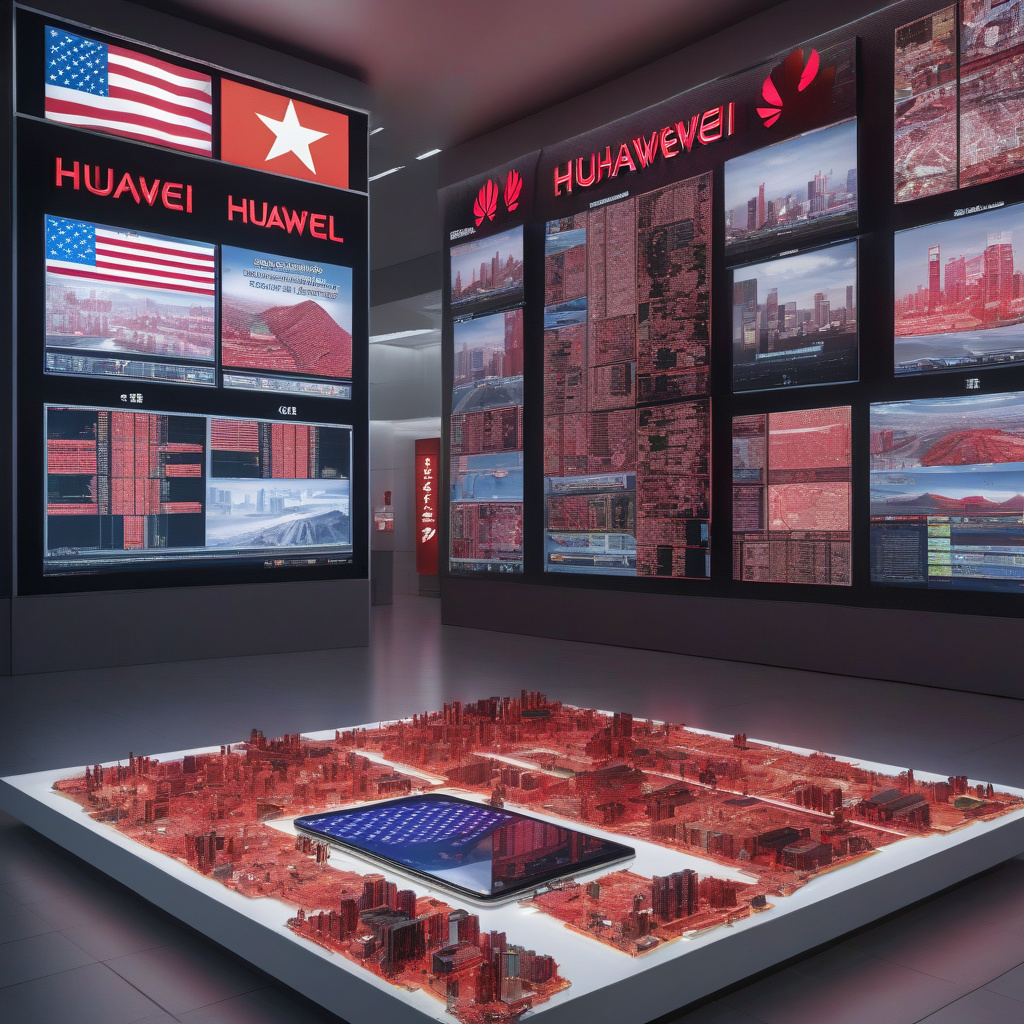Title: The US-China Tech Battle: Huawei’s AI Chips at the Center of Rising Tensions
In the ever-evolving landscape of technology and geopolitics, the recent clash between the United States and China over Huawei’s AI chips has reignited tensions between the two global giants. Just a few weeks after tentative steps towards de-escalation in their trade war, a new battleground has emerged in the form of semiconductor technology.
China’s Commerce Ministry in Beijing issued a stern warning, signaling its readiness to take legal action against any entities enforcing U.S. export restrictions on Huawei’s AI chips. This move underscores China’s firm stance in protecting its tech industry, particularly Huawei, a key player in the global market.
The crux of the issue lies in the strategic significance of semiconductors, especially in the realm of artificial intelligence. AI chips are pivotal in powering cutting-edge technologies, from autonomous vehicles to advanced data analytics. With Huawei being a frontrunner in AI chip development, the U.S. restrictions pose a direct threat to China’s technological ambitions.
For the United States, the restrictions on Huawei stem from national security concerns, with the fear that Huawei’s technology could be used for espionage or other malicious purposes. This clash encapsulates the broader struggle for technological supremacy and security dominance between the two superpowers.
The implications of this standoff are profound, reverberating across global tech supply chains and markets. Companies worldwide that rely on Huawei’s AI chips are caught in the crossfire, facing uncertainties and disruptions that could impact their operations and competitiveness.
As the US and China navigate this turbulent terrain, finding a resolution that balances security concerns with technological progress is paramount. Collaborative efforts to establish clear guidelines and protocols for the use and distribution of advanced technologies like AI chips could pave the way for a more stable and secure tech ecosystem.
In the fast-paced world of tech diplomacy, where innovation drives economic growth and national security, finding common ground amidst conflicting interests is a formidable challenge. The US-China tech battle over Huawei’s AI chips serves as a stark reminder of the intricate interplay between technology, politics, and power on the global stage.
As developments unfold and tensions simmer, the tech world watches with bated breath, cognizant of the far-reaching consequences of this high-stakes standoff. Balancing innovation with security imperatives will be the ultimate test for both nations as they navigate the complex web of AI chip technology and its implications for the future of global tech leadership.
In conclusion, the US-China clash over Huawei’s AI chips underscores the critical intersection of technology, geopolitics, and security in today’s interconnected world. The resolution of this conflict will not only shape the future of AI chip development but also set the tone for international cooperation and competition in the tech arena. Stay tuned as this high-stakes tech drama continues to unfold on the global stage.

